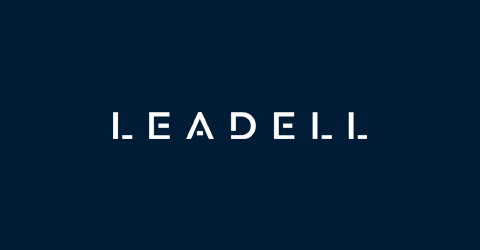Best Cyber Law, Data Privacy and Data Protection Lawyers in Republic of Lithuania
Share your needs with us, get contacted by law firms.
Free. Takes 2 min.
Or refine your search by selecting a city:
List of the best lawyers in Republic of Lithuania
About Cyber Law, Data Privacy and Data Protection Law in Republic of Lithuania:
Cyber Law, Data Privacy, and Data Protection in the Republic of Lithuania are governed by a comprehensive legal framework that aims to protect individuals' rights and regulate the use of personal data online. This includes laws such as the Law on Legal Protection of Personal Data and the Law on Electronic Communications, which outline the rights and obligations of both individuals and organizations when it comes to data privacy and protection.
Why You May Need a Lawyer:
You may need a lawyer specializing in Cyber Law, Data Privacy, and Data Protection in Lithuania if you have experienced a data breach, are facing a legal dispute related to data privacy, or need assistance with complying with local regulations. A lawyer can help you understand your rights, navigate complex legal processes, and ensure that your personal data is handled in accordance with the law.
Local Laws Overview:
The key aspects of local laws in Lithuania relevant to Cyber Law, Data Privacy, and Data Protection include the General Data Protection Regulation (GDPR), which sets strict standards for data protection and privacy. Additionally, the Law on Legal Protection of Personal Data outlines the rights of individuals when it comes to the processing of their personal data, including the right to access and correct information, as well as the right to be forgotten.
Frequently Asked Questions:
1. What is the role of the Data Protection Inspectorate in Lithuania?
The Data Protection Inspectorate in Lithuania is responsible for overseeing and enforcing data protection laws, including investigating complaints related to data privacy violations and ensuring that organizations comply with data protection regulations.
2. What are my rights as an individual under Lithuanian data protection laws?
As an individual in Lithuania, you have the right to access and correct your personal data, as well as the right to request the deletion of your data under certain circumstances. You also have the right to know how your data is being used and to withdraw your consent for its processing.
3. What is considered personal data under Lithuanian law?
Personal data in Lithuania is defined as any information that can be used to identify an individual, such as a name, address, email address, or IP address. This includes both sensitive and non-sensitive information.
4. What are the consequences of non-compliance with data protection laws in Lithuania?
Non-compliance with data protection laws in Lithuania can result in significant fines and penalties, as well as damage to an organization's reputation. It is essential to ensure that your organization complies with data protection regulations to avoid legal consequences.
5. Can I transfer personal data outside of Lithuania?
Yes, you can transfer personal data outside of Lithuania, but you must ensure that the recipient country provides an adequate level of data protection. If the country does not meet this standard, additional safeguards must be put in place to protect the data.
6. How can I report a data breach in Lithuania?
If you experience a data breach in Lithuania, you should report it to the Data Protection Inspectorate as soon as possible. They will investigate the breach and take appropriate action to protect your personal data and prevent future incidents.
7. How can a lawyer help me with data protection compliance in Lithuania?
A lawyer specializing in data protection can help you understand your legal obligations, create policies and procedures to ensure compliance, and represent you in legal disputes related to data protection. They can also advise you on best practices for data security and privacy.
8. Is consent required to process personal data in Lithuania?
Yes, consent is generally required to process personal data in Lithuania, unless there is a legal basis for processing the data without consent. Consent must be freely given, specific, informed, and unambiguous, and individuals have the right to withdraw their consent at any time.
9. What should I do if my data rights have been violated in Lithuania?
If your data rights have been violated in Lithuania, you should contact the Data Protection Inspectorate to file a complaint. You may also consider seeking legal advice from a lawyer specializing in data protection to explore your options for recourse.
10. How can I stay updated on changes to data protection laws in Lithuania?
To stay updated on changes to data protection laws in Lithuania, you can regularly check the website of the Data Protection Inspectorate for news and updates. You can also subscribe to newsletters from legal organizations and attend seminars or webinars on data protection topics.
Additional Resources:
For more information on Cyber Law, Data Privacy, and Data Protection in Lithuania, you can visit the website of the Data Protection Inspectorate (https://vdai.lrv.lt/en) or consult with a lawyer specializing in this area of law.
Next Steps:
If you require legal assistance with Cyber Law, Data Privacy, or Data Protection in Lithuania, consider reaching out to a qualified lawyer experienced in this field. They can provide you with guidance, representation, and peace of mind knowing that your rights are protected under the law.
Lawzana helps you find the best lawyers and law firms in Republic of Lithuania through a curated and pre-screened list of qualified legal professionals. Our platform offers rankings and detailed profiles of attorneys and law firms, allowing you to compare based on practice areas, including Cyber Law, Data Privacy and Data Protection, experience, and client feedback.
Each profile includes a description of the firm's areas of practice, client reviews, team members and partners, year of establishment, spoken languages, office locations, contact information, social media presence, and any published articles or resources. Most firms on our platform speak English and are experienced in both local and international legal matters.
Get a quote from top-rated law firms in Republic of Lithuania — quickly, securely, and without unnecessary hassle.
Disclaimer:
The information provided on this page is for general informational purposes only and does not constitute legal advice. While we strive to ensure the accuracy and relevance of the content, legal information may change over time, and interpretations of the law can vary. You should always consult with a qualified legal professional for advice specific to your situation.
We disclaim all liability for actions taken or not taken based on the content of this page. If you believe any information is incorrect or outdated, please contact us, and we will review and update it where appropriate.
Browse cyber law, data privacy and data protection law firms by city in Republic of Lithuania
Refine your search by selecting a city.













